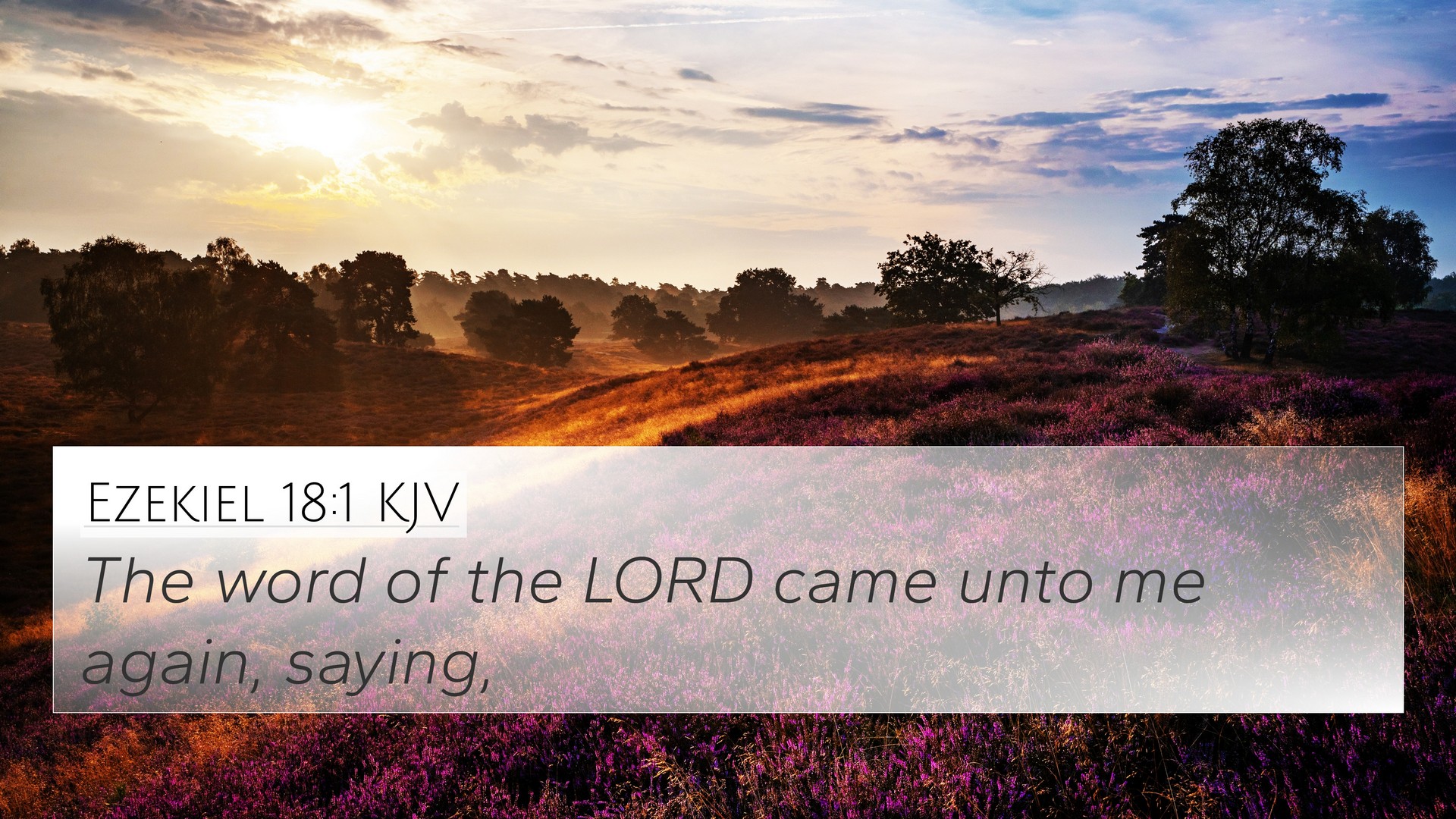Ezekiel 18:1 Meaning and Interpretation
Bible Verse: "The word of the LORD came unto me again, saying," (Ezekiel 18:1)
The opening verse of chapter 18 sets the stage for a profound discussion on individual responsibility and accountability before God. Given the context of Ezekiel's ministry, this verse serves as a pivotal point, marking the transition to a new theme regarding sin, repentance, and God's justice.
Summary of Insights from Public Domain Commentaries
The insights from three notable commentaries—Matthew Henry, Albert Barnes, and Adam Clarke—provide a comprehensive look at this verse's meaning:
-
Matthew Henry:
Henry emphasizes the importance of divine revelation in the prophetic ministry. The phrase "the word of the LORD" signifies both authority and urgency, underscoring that what follows is not mere human opinion but a command from God. This sets up the subsequent discussion about the nature of righteousness and the implications of one's actions.
-
Albert Barnes:
Barnes highlights that this verse signifies God's ongoing communication with His people. The repetition of "the word of the LORD came unto me again" indicates that God's messages are persistent and vital for understanding His will. This introduces the theme of personal accountability, distance from inherited guilt, and the call for individual moral decisions.
-
Adam Clarke:
Clarke focuses on the context of Ezekiel's prophecies, suggesting that this specific message was directed towards a people who were wrestling with the implications of judgment. This verse prepares the Israelites for a deeper examination of their sins and their need for repentance. It marks a moment of revelation that calls Israel to introspection and accountability.
Thematic Connections and Cross-References
This verse interacts significantly with other biblical passages that discuss themes of justice, repentance, and individual responsibility. Below are several relevant cross-references:
- Deuteronomy 24:16: "The fathers shall not be put to death for the children, neither shall the children be put to death for the fathers: every man shall be put to death for his own sin." This verse reinforces personal accountability.
- 2 Corinthians 5:10: "For we must all appear before the judgment seat of Christ; that every one may receive the things done in his body, according to that he hath done, whether it be good or bad." Here, the theme of individual assessment is reiterated.
- Romans 14:12: "So then every one of us shall give account of himself to God." This further supports the idea that each person is responsible for their own actions.
- Ezekiel 18:30: "Therefore I will judge you, O house of Israel, every one according to his ways, saith the Lord GOD. Repent, and turn yourselves from all your offenses; so sin will not be your downfall." This continuation shows God's call to repentance.
- Galatians 6:5: "For every man shall bear his own burden." This verse aligns with the teachings of individual responsibility.
- James 1:15: "Then when lust hath conceived, it bringeth forth sin: and sin, when it is finished, bringeth forth death." This verse discusses the consequences of personal actions.
- Matthew 12:36: "But I say unto you, That every idle word that men shall speak, they shall give account thereof in the day of judgment." The seriousness of verbal and moral accountability is further emphasized.
Conclusion
The significance of Ezekiel 18:1 lies in its profound message about individual accountability before God. Through the insights of prominent biblical commentators and its connections to other scriptural passages, this verse invites readers to engage in self-examination and repentance while affirming God's justice and mercy. As one explores these themes, they quickly realize the intricate tapestry of biblical teachings on personal responsibility, which is essential in understanding the entire narrative of redemption in Scripture.
Tools for Bible Cross-Referencing
For those wishing to dive deeper into the connections between Bible verses, the following tools and approaches are recommended:
- Bible Concordance: A useful resource for locating specific words and their occurrences throughout the Bible.
- Bible Cross-Reference Guides: These resources can help identify links between verses across both the Old and New Testaments.
- Cross-Reference Bible Study Methods: These strategies can enhance your understanding of the dialogues that occur within scripture.
- Comprehensive Bible Cross-Reference Materials: Utilizing comprehensive texts can provide an overview of thematic connections within Scripture.
- Identifying Connections between Old and New Testament: Study the correlations and thematic threads that run through the entire canon of Scripture.


